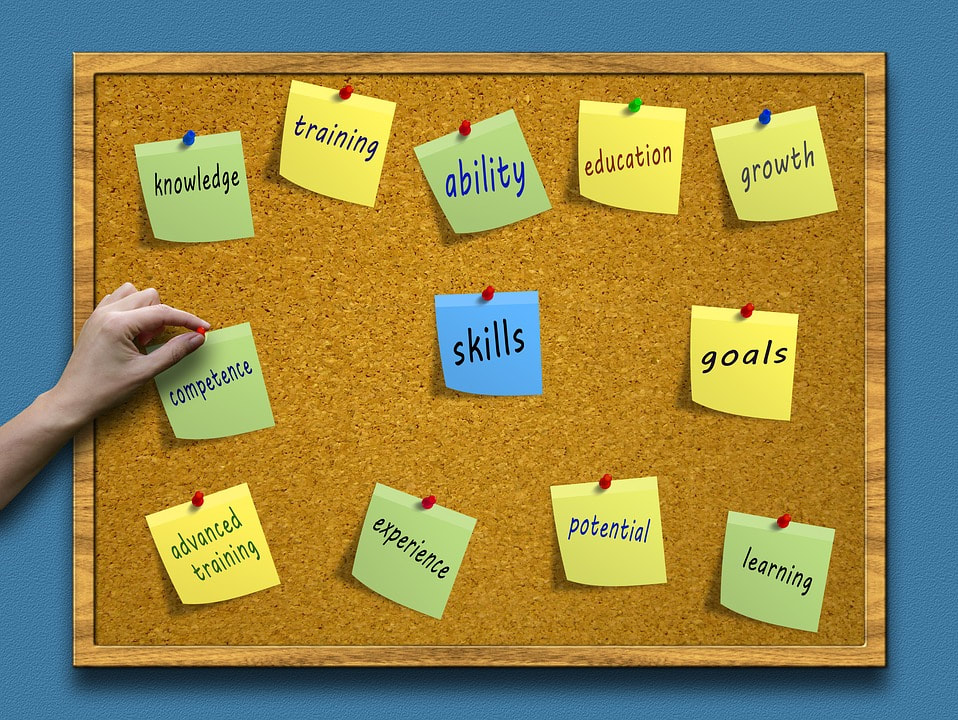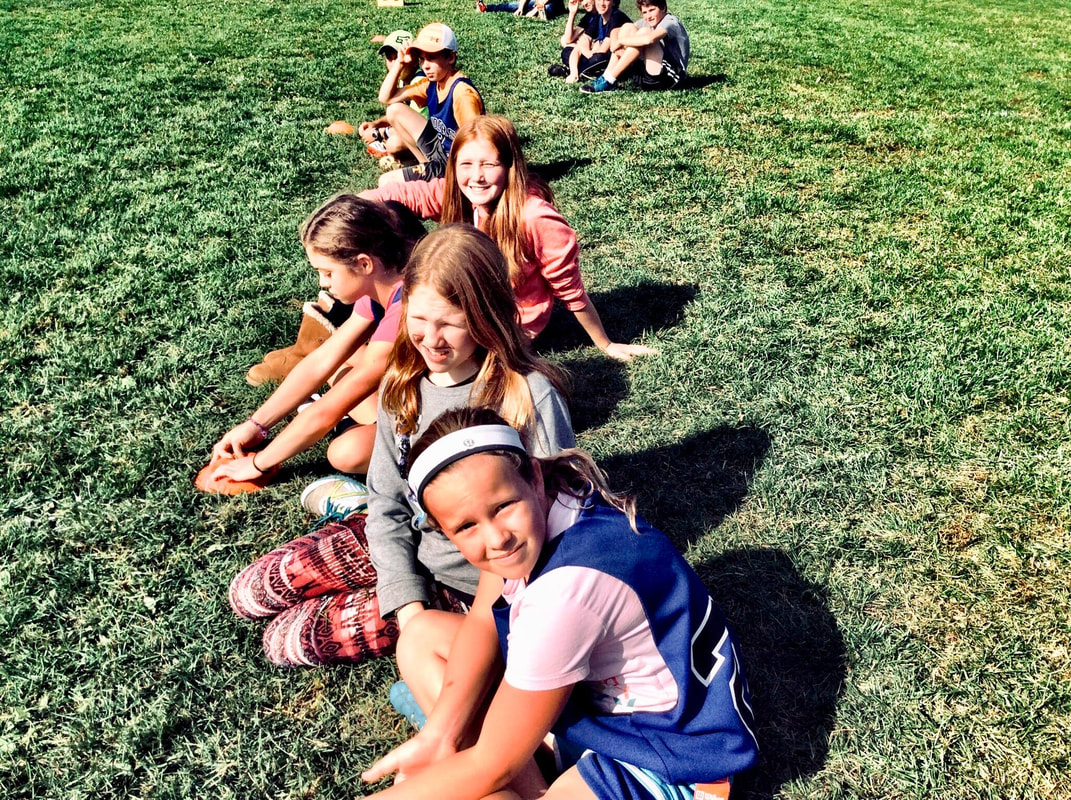|
When looking at any activity or required skill within an organisation, there are four levels of competency. As we learn and develop, no matter what the skill or activity is, we all go through these stages from knowing nothing about what we’re doing to being unconsciously competent in what we do.
As we move through each of these stages, it can be quite confronting for many people, especially if they’ve been doing something which isn’t quite right or there’s more to what they’re doing than they’ve ever imagined. The first stage and often the most confronting realisation for people is unconscious incompetence. This is where you don’t know what you don’t know. It’s the most frustrating point at which we find ourselves and in terms of risk management, the most dangerous point and position someone can be in if they’re responsible for an outdoor or experiential program which involves a level of risk. The worrying thing about this is that over many years, I’ve come across countless people in the head of outdoor education or experiential education positions who are unconsciously incompetent. They’ve been promoted as a teacher into a role for which they might have had an interest, but no real or extensive experience. In this case, whoever is put into this role is being failed by the organisation. Having an interest in something versus understanding the role and inherent risks is a totally different thing. If you don’t know the risks of an activity or program, how can you be expected to manage them effectively? Getting some basic training in the skill or activity then helps someone to move from this first stage to the second one, which is conscious incompetence. This is where you realise you lack certain skills and understand the need to train in, practise and develop those skills. In terms of risk management, this is key to getting things right within your school or organisation. For many of those teachers who have been promoted to positions of responsibility to oversee programs with a range of risks involved, it’s vital that each understands the risks to which they and their staff are exposed and how to effectively manage these risks. Once someone has this realisation, then they can start to plan to address this skills’ gap in themselves and in their organisation. Further training and experience at this point, then gets you to a position where you’re consciously competent. You still have to work on many parts of the programs and continue to practise and develop your skills, but overall, you’re good at what you do and are able to support and develop others as well. The final stage is unconscious competence. You know what you’re doing without thinking about it. You have a level of experience and initiation, which guides your decision-making process to support the programs you’re running. In your mind, you have a picture of what a standard program, day or experience should look and feel like and you automatically react and respond if something doesn’t quite fit. For example, if a series of different weather conditions or warnings present themselves, you unconsciously play out various scenarios in your mind as to the potential impact and consequences of this. A realisation of this for me was on one program. There was a pattern of illness and student behaviours emerging which pointed toward a series of potential injuries. The change of energy in the group, the apparent fatigue that was emerging, meant that a change of plans was needed. Due to the different level of skills and experience amongst the staff team, only a couple of staff could see this pattern emerging and others couldn’t see the problem at hand. The potential negative consequences of not being able to identify risks as they’re emerging can be huge. It’s critical to ensure that you have unconsciously competent staff in your team to help advise you and others on hazards and risks which might not be obvious to others who are still at the lower levels of skills’ development. Whilst some of these four different levels can be addressed through training, which is vitally important to begin with, the other levels are grown and developed through practice and experience in whatever it is you’re doing. Further training can reinforce this. However, practice really does make perfect. Whatever level you and your colleagues are at now, you will benefit immensely from training and experience to ensure that all your staff are unconsciously competent in whatever it is they’re doing.
0 Comments
Recently, I was working on a residential program and despite students needing to have a phone on them for our risk management as part of the program, we collected everyone’s phones at night. Now this was something which had wide spread support of parents and limited support from students. No surprises there with the Pandora’s box that’s been opened on that front, which is the point of this article.
Whilst many students thought I was the worst person in the world for taking their phones every night, it made me realise something which I suspected, but didn’t quite have the evidence to support it until now. The phones generally went on charge before homework time in the evening around 7:30 and after prep, bedtime was around 9:45 with lights out at 10pm. With all the phones being recharged in the duty office overnight, I noticed something when I went back to wrap things up for the evening. Depending on what time all the students were settled, I’d generally head back into the office somewhere between 10:30 and 11pm. Sitting there, writing up the daily notes for the next day’s handover, I’d hear the buzz, bings and blips of the fifty odd phones going off the whole time I was there. To begin with, it was just annoying, but it became progressively more concerning. One evening, I was up past midnight and the phones were still going. This gave me the sudden realisation of how overwhelming this must be for their minds. Phones are already addictive by nature. This helps us to understand the ongoing problem that teenagers are facing with the inability to switch off from the connected world. If their phones are still alive with notifications late at night and I mean every night, not just weekend, every single night, what chance do they have to be able to cope in class with tiredness and a constant craving for another dopamine hit. Like coked up lab rats, they become slaves to the device that’s shaping and manipulating their behaviour almost every hour of the day. This is bound to be slowly destroying their ability to cope with the real world and doing unknown long-term emotional damage. Yet parents are still giving their children phones at a phenomenal rate. We have well and truly thrown in the towel on this one in such a short period of time. We need to pick up that towel and get back in the ring. This is something worth fighting for as large social media companies care nothing for their users and everything about their profits. These companies have built intentionally addictive functionality into their platforms to keep people online and this is the result, endless distractions designed to manipulate the formative years of children. When you see this toxic mess for what it really is, it makes you wonder about the world 2.0 and how regressive social media has been for us. Digital technology is amazing, but we still need everyone to have the opportunity to switch off from it and not be constantly bombarded with messages, notifications and whatever other crap comes through their phones. Despite the large tech companies doing nothing but giving lip-service to social responsibility, we have a responsibility to help students switch off from this potentially dangerous and destructive world and provide them with the opportunity to understand the life and circumstances in which they find themselves living. It’s time we gave them the opportunity to switch off and build real relationships with real people and not just be mindless slaves, slowly losing their sleep and minds to the wonderful machine that goes bing. Education without focus, is just like anything else without focus. It’s hap-hazardous at best and pointlessly time-wasting and counterproductive at its worst. However, this seems to be the way education goes these days. It’s all over the place where you’ve got a bit of this, a bit of that and a bit of everything. Yet if you’re trying to please everybody with everything, you invariably don’t end up pleasing anybody with anything. The fact is that the world has changed and in recognition of that, so must education.
Recently, I came across a number of different schools that are targeting specific areas for growth and development. I find this is a fascinating approach and one which has the potential to produce some amazing opportunities and educational results. However, how do you know what your child wants to focus on? Often, it’s the parents who want their kids to do something, rather than the desire coming from the children themselves. I’ve seen this horrible and damaging sort of situation so often and you know what the end result will be, but it’s like watching a train wreck in motion. There’s not much you can do about it. The fact is that if this is the case, then no matter how much a parent wants something, it's never really going to be something their son or daughter really wants to do. For example, my parents wanted me to learn the piano. I hated the piano. I didn't enjoy learning. I didn’t enjoy practicing. I didn't enjoy performing. I really didn’t enjoy anything about it. Despite loving to listen to music, I wasn’t someone who wanted to play an instrument of any kind. However, I enjoyed singing and I ended up doing some singing lessons and performances which I really enjoyed. Yet without both these experiences, I would never have known what I liked and what I should focus on. To begin with, it’s well worth encouraging kids to experience a whole range of different activities and explore interests without the parental pressure and expectations to pick one thing that they really want themselves. This process can help students work out what makes them tick and therefore what they should be focusing on in their education, especially in their high school years. I remember when I was in primary school at the end of one term, we did a week of trying out a different sort of activity. We were given a range of different options. We could choose bowling, squash, tennis or even roller skating and I don’t mean roller blading. I mean roller skating! Yes, it was still a thing back then and it was so much fun. You'd skate up to the DJ, request a song, then skate around the rink as fast as you could when your song came on! Unfortunately, the skating rink, ‘Skatehaven’ was turned into self-storage units years ago. Such a sad end to a wonderful venue, but back to the main point! The fact was you were able to choose something and concentrate on it for a week. You’d learn different skills and techniques and you’d be able to challenge yourself doing something new and different. If you didn’t like it, at the end of the week you never have to do it again, but if you liked it, this just opened up a brand-new opportunity and interest for you. That week I chose squash! This is something I really remember about primary school. Most of the time you don’t remember anything about primary school because it was so long ago and far away and but so much better than it is today. Every maths, English, geography and science lesson all blend into one with very little recollection at all of any that really happened. However, when you do something unique and different it stands out and becomes memorable. To be honest, I’ve never played squash since, but I did really enjoy that week. I did however, go on to play tennis which is sort of the same thing anyway. Yet schools don’t tend to do many experiential education weeks like this. If they did, it would have a profound impact on a child’s education and development. Think about it this way. You have schools full of dedicated teachers, whose lessons will never be remembered. That to me seems like a complete waste of time and talent. Perhaps a few more memorable weeks each year doing something different wouldn’t hurt at all. In fact, even if you did a month a year throughout high school, that’s still only six months of a student’s education, which is six months more of experiences they will actually remember, learn from and cherish for the rest of their lives. Even taking this time out, they’ll still have five and a half years of blurred generic grey days in classrooms about which to forget. With the stats suggesting that in Australia 40% of students are disengaged, why not try something different and meaningful to get at least some of those 40% back on track. In what are they interested? What do they love to do? Do you have any idea what drives them? If you don’t know that, you can’t tailor a program for them. Why not have a month every year that’s dedicated to doing different activities and I don’t mean outdoor ed activities, I mean a whole range of community, cultural, sporting and workplace activities to see what actually makes students get excited about their life and contribution to society. Some weeks they will like, some weeks they won’t like but it starts to develop a picture and it starts to give students a feeling for different activities, for different experiences and for different challenges. It lets them develop some ideas of a path that they enjoy and that they want to follow. It lets them explore what they want to explore and this can be tied back into the classroom and academic programs they need to be able to do to get into a specific field which interests them. There’s a great benefit from this because once you have students re-engaged, they’re actually going to learn and so if you have someone who is learning and someone who is keen, they’re more likely to go on to further education or seek positive employment opportunities or contribute in a meaningful way to their communities. They’re less likely to be disillusioned, disengaged with the life, the universe and everything and sitting at home doing nothing. With massive levels of youth unemployment in our country and a growing trend towards automation of many entry level and low-level repetitive jobs, it’s time to do something more useful and productive in education. At the end of the day, things like NAPLAN results and standardized tests are pointless numbers which are quickly forgotten like most classroom lessons. The emphasis that has been put on these things, would give you the impression that they’re useful indicators of long-term learning and employability, which they’re not. At the end of the day, you want young men and women who can think for themselves and be able to help solve the terrible social, environmental and economic mess they’re been left with by previous generations. Finding meaningful experiential education experiences for them to have over the course of their schooling is critical to achieving this and it shouldn’t be lumped as a ‘co-curricular’ or one off activity. Build something useful into the daily lives of students and this will have a profound impact on the way in which they learn. When we don’t know what we’re doing and we’re expected to have answers or manage risk, this is a massive problem. How can we be expected to put systems in place and plan for contingencies if we don’t understand the situation or context of what we’re expected to be doing.
Many teachers find themselves in this exact situation and are expected to plan for something about which they know nothing. At this point, the major activity and operational risk comes from the person not knowing what they’re doing, rather than the potential inherent risks of the activity itself. Do we let inexperienced drivers get behind the wheel without any training or supervision? Thankfully not. Yet why are so many teachers allowed to run sports, excursions and activities with no idea, training nor experience in what they’re doing? It literally makes no sense at all to allow someone to take on a role which requires them to plan for and mitigate risks, if they have no idea themselves. The increased risk here comes from the person not knowing what they’re doing at all and they’re simply making things up as they go, which is never good in terms of risk management. A number of years ago we came across one such group on an expedition. We were in Kangaroo Valley and just starting out on an expedition when we came across a group just finishing an expedition. In talking with them, we quickly realised they had absolutely no idea what they were doing. Their whole risk management plan was apparently based upon the fact that one of the teachers went for a walk and saw a snake, therefore they went canoeing instead because the risk of the snake was too great. I really want to laugh at this point as on that exact same river, I saw a 3 metre Eastern Brown Snake in the water and then it slithered up onto the place we had just had lunch, so seeing a snake in the wild and basing your decision on risk management around a single sighting of a snake seems quite idiotic to be perfectly honest. Essentially these guys had been out on a multi day canoe expedition with no canoe instructors, no maps, no communications devices and no backup plans. Everything has to run perfectly for them to be ok, which relying on luck for your management of risk, is never a good thing. One wonders how this group was even allowed to go out on this trip with such a poor basis for the management of the inherent risks, let alone the operational risks which were so obvious to this trip. Unfortunately, trips like this go out every day with no idea what their real risks are and the consequences of this can be horrendous if something goes wrong. The only way that this sort of situation can be avoided is through training and experience. If any organisation is sending staff out untrained and unprepared in terms of risk management, then they deserve everything they get if something goes wrong. Schools don’t allow untrained teachers in the classroom, so why do they allow untrained teachers in the field. Whether the teacher is running the trip or not, they need to understand what they’re doing to ensure they’re capable and effective in managing the risks involved outside of the classroom. Therefore, they need to be trained and experienced in general risk management, as well as activity or program specific risk management, so they can minimise the risks involved. The risk of not knowing what you’re doing is far too great and negligent when there’s so many opportunities to get trained and get up to speed with factors of which you should be aware and doing the right things to ensure you’re running awesome, experiential educational programs. If you feel like you don’t know what you’re doing and don’t understand the risks involved or just need a refresher, then get some training today so that you can confidently manage risk no matter what the situation or context. Thus, always run awesome, educational programs for all your students. Why are schools so challenged by risk management? This is something I’ve been noticing a lot lately and whilst risk management in schools has never been strong, because it doesn’t form part of a teacher’s training, the fact that it’s so important baffles me as to the lack of attention given to it.
Whilst many a school will scream and curse at this suggestion, claiming that they have a great paperwork system, there lies the problem. A paperwork system based purely on checking boxes and approvals masks the fact that there’s a lack of real risk management understanding and implementation. Paperwork without training and experience is just that, paperwork. It can be dragged out to accuse staff of this or that in an attempt to deflect blame, rather than being a support mechanism for decision making and good operational practices. One place I worked was obsessed by paperwork. One activity was determined unsafe because the paperwork wasn’t good enough. This was yet another ill-informed and idiotic comment from someone who knew nothing about risk management. The boss also insisted everyone sign every document, before going out on an activity, but when something within that document was materially affecting the safety of the program, nothing was done about it. Now, I admit this was an extreme case, but we learn a lot from these things and the reality is that if a teacher has not had any formal Risk Management training, the teacher shouldn’t be planning or running any sort of activity at all. Anything from a practical lesson, to a quick trip down the road to a local park, gallery, courthouse or museum, right up to sports, camps and overseas trips, requires a risk management assessment. Teachers must take the time, not just to learn how to ‘do’ paperwork, which I could probably train a team of monkeys on typewriters to do quite a lot better than some of the risk assessments I’ve read over the years, but instead, the most important thing is that they need to train for situational awareness, contingency planning and how to be adaptable and flexible to ensure whatever the activity is, it’s run well. The number of teachers who are taking groups of students out on activities who are untrained, unskilled and unprepared is worrying. You cannot contract out your duty of care nor your liability to a third party, so if you’re taking a group overseas, then you are responsible for everything that happens regardless of contract providers. These are some of the most dangerous trips to run, as far too many people see this as a holiday, rather than the significantly higher duty of care and potentially reduced resources, yet countless trips head out with a bit of paperwork and teachers who have no ideas what’s in that, nor how to really implement any of it. This disconnect widens, the more schools employ people to ‘do’ their risk assessments for them. I’ve seen an increasing number of schools put this responsibility on one person and not the people running the trips. At the end of the day, if you aren’t trained and experienced in the management of risk, then you shouldn’t be planning and running a trip at all. This isn’t to say stop doing trips, because that would be stupid and pointless. Instead, get some training so that you can be confident in what you’re doing and start to build a culture within your organisation which understands and has great risk management systems so every trip goes out with confident pro-active teachers who are prepared and situationally aware so that you are always running great experiential education programs for everyone. Before your next excursion, do a risk management training course and build your skills-set and start to address this disconnect between documentation, implementation and culture. The only way to truly run great programs, is to have that culture of risk management right throughout your organisation. |
Categories
All
Archives
April 2021
|





 RSS Feed
RSS Feed